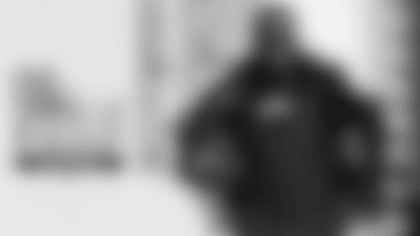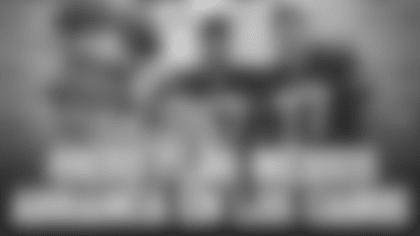Richard Hightower has far too much self-belief to consider himself an underdog. Still, his life is full of evidence to support that notion.
He spent his childhood in one of Houston's toughest inner-city areas – a neighborhood that mandated your head be on a swivel every time you left the house. Hightower defied the odds by staying out of trouble and ranking in the top three percent of his high school graduating class (13th out of more than 500 students, to be exact). He earned a full-ride academic scholarship to the University of Texas.
Division I football rosters, especially at Power 5 schools, are mostly void of 5-foot-8 players bar the occasional athletic marvel. Unfortunately, Hightower was undersized without freakish talents. And yet, he walked on for the Longhorns and eventually received an athletic scholarship as a special teams dynamo.
Then Hightower left behind a promising career on the marketing side of football in order to pursue his dreams as a coach. He's since spent nearly two decades climbing the coaching ranks all the way into his current role as the special teams coordinator for the San Francisco 49ers.
"Winners never quit, and quitters never win," Hightower said. "It's cliché, but I remember hearing that as a six-year-old. My dad taught me to finish what I started no matter what."
Hightower credits his parents – father Richard Anthony Hightower Sr. and mother Carolyn Hightower – for his outlook, perseverance and overall success. Both did their best to provide Hightower and his older sister Traceé with every opportunity to follow their passions. (Hightower jokes that his sister, a high school salutatorian and eventual partner at Price Waterhouse Cooper, is whom this story should be about.)

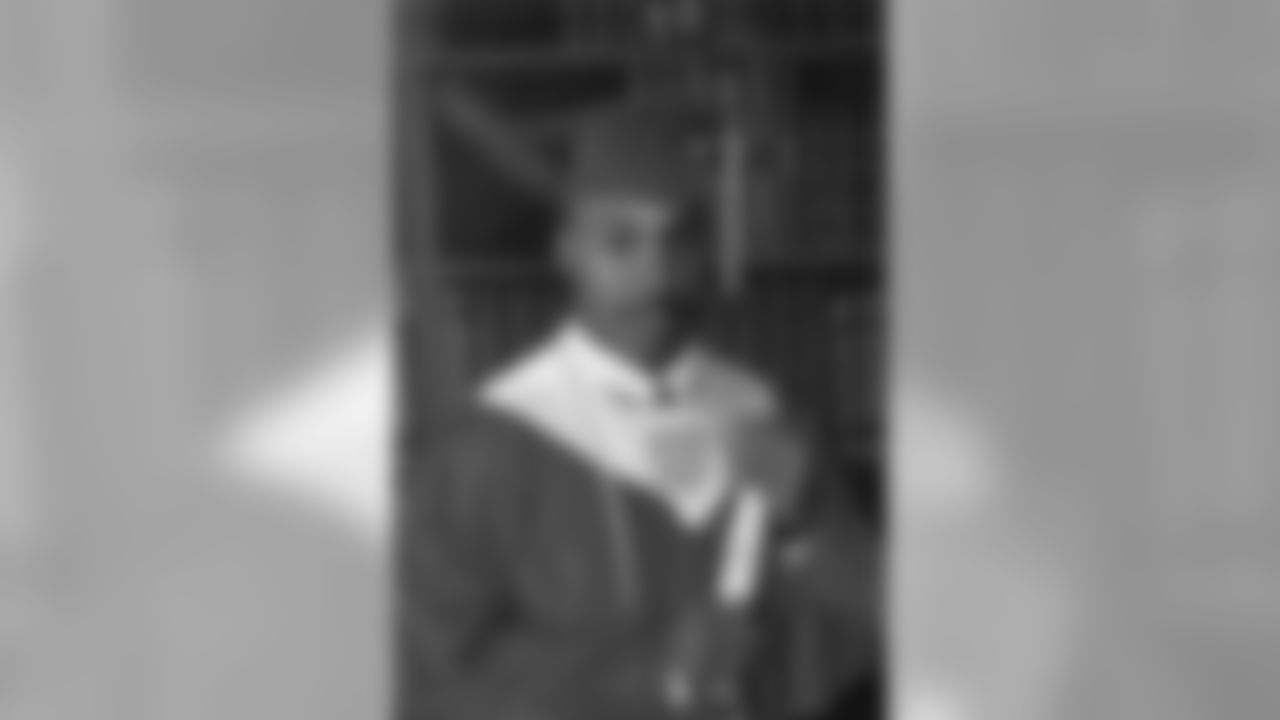
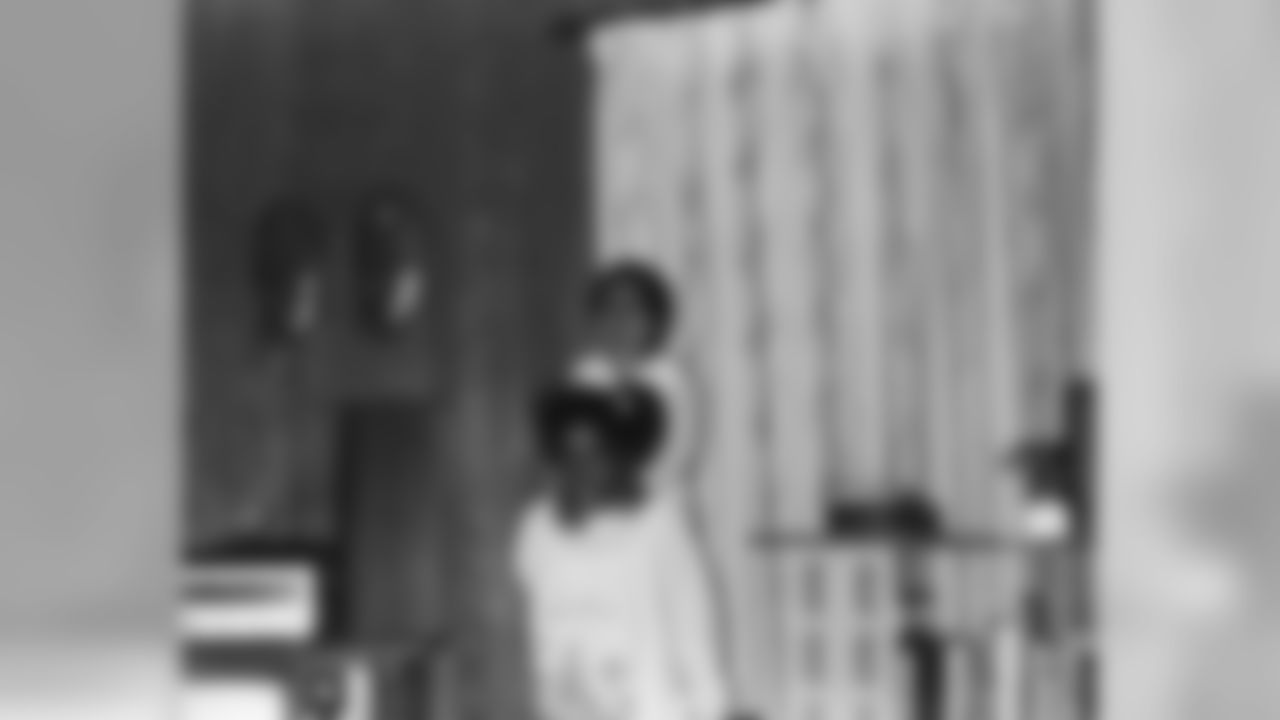
Richard and his sister Traceé
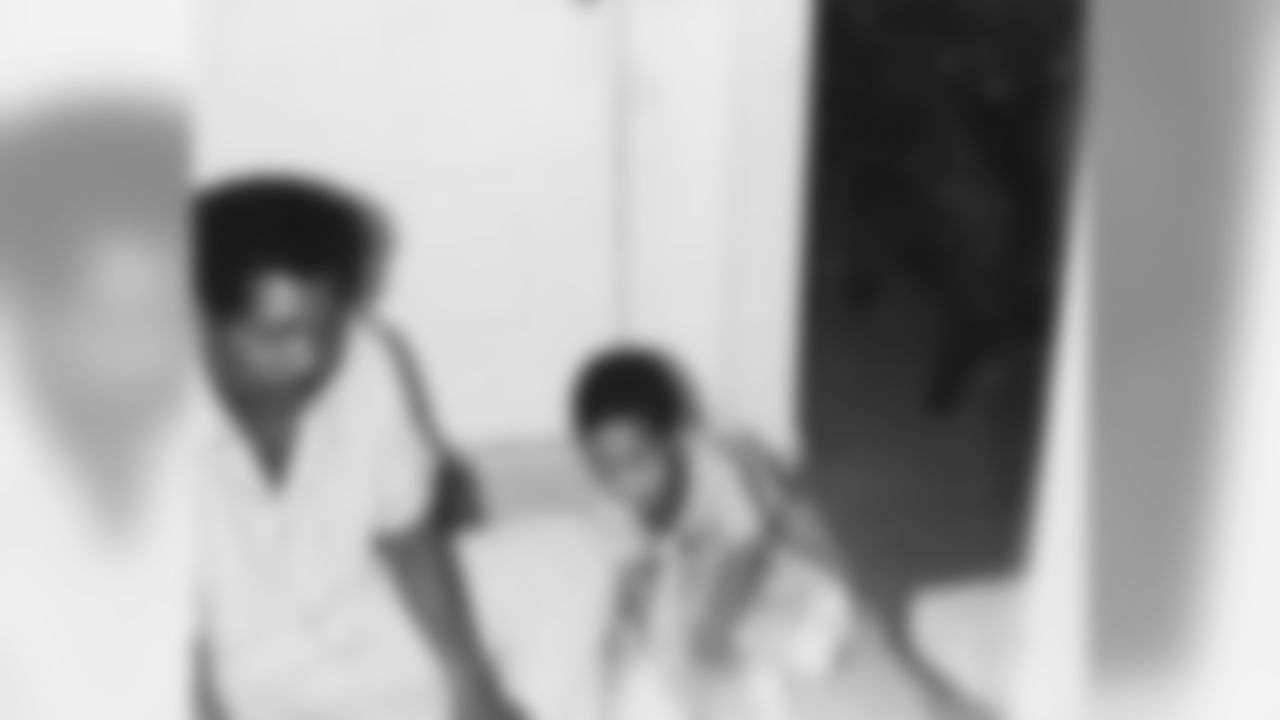
There were three distinct points of emphasis within their household. The first was to respect everyone in the family. It was to be exhibited from the moment you woke up until your head hit the pillow at night. Hightower's father ensured that was always the case.
"When you walked by someone, you had to say 'good morning' as a sign of respect. If I walked by my mom and didn't say 'good morning,' I'd have to get dealt with," Hightower said laughing. "I'd get a pop for that, and I learned real quick. There was hell to pay for that."
The second was a dedication to academics. Evidently neither kid had an issue there.
Finally, and this served as the root of Hightower's bond with his father, was an emphasis on athletics. The lessons in structure, responsibility, accountability, teamwork and dedication made sports a foundational piece in Hightower's childhood.
He played baseball, basketball and football, and his father was always in attendance. Hightower Sr. spent years in and out of jobs but continuously found a way to compartmentalize his own struggles in order to keep an unwavering role in his son's life.
"Monday Night Football" was another source of fond memories. Hightower and his father would watch together as a weekly tradition.
"We'd never miss it," he said. "We would watch it, and then we'd play catch during commercials. Every commercial break we'd play catch."
That continued through high school. When it came time to pick a university, Hightower decided he not only wanted to attend Texas, but he was adamant about playing football for the Longhorns.

"He was way undersized, and he didn't have great speed," recalled former Texas head coach Mack Brown.
Hightower flamed out at safety before moving to the receiver's room. He quickly recognized he wouldn't have a future as a wideout, either. But Hightower wouldn't be denied, because winners never quit, and quitters never win.
He worked his tail off as a scout team receiver. His job was to give the starters the best look possible during each week of preparation. Brown reiterated to every walk-on that if they could impress the coaching staff on the scout team, then they'd be given the opportunity to travel to road games.
Traveling was a feather in the cap for a walk-on, but Hightower wanted more. He believed he could be a difference maker on gamedays. Brown remembers Hightower relentlessly pining coaches for a chance to play on special teams. Brown finally obliged during Hightower's redshirt freshman season in 1999.
Hightower recorded three tackles and a fumble recovery on kickoff coverage in his very first game, a home contest against Texas Tech.
"He ended up being on every special teams unit because he found his niche," Brown said. "We told everybody, 'There's something you can do to help this team. It's your responsibility to go find it.' Richard was able to do that."
Hightower's production on special teams, on top of his blue-collar approach, made him a respected presence in Texas' locker room.
“He was a stud and earned everything." Kyle Shanahan
"He was a stud and earned everything," said Kyle Shanahan, who played with Hightower at Texas after transferring from Duke. "He was kind of our bell cow on special teams. He was tough as hell and played extremely physical. He was a dude you didn't mess with."
The pinnacle of Hightower's career at Texas came just before his senior season. Each Division I program is allowed to give out 85 scholarships. If any are leftover, it's common for coaches to reward senior walk-ons for their dedication over the years.
So on the final night of camp in 2002, in front of the entire team, Brown awarded Hightower, fellow special teams standout Michael Ungar and Shanahan with scholarships.
"It was an amazing moment. I just remember the team being fired up," Hightower said. "It was totally out of the blue. I didn't expect it, and I'm forever grateful to Mack Brown because he didn't have to do it."
Brown went as far as to call Hightower one of the three most memorable walk-ons he'd ever coached.
"The reason I've kind of adopted him as an extension of our family is because he's going to make things work," Brown said. "He's got the most positive attitude and the most energy of just about anybody I've ever been around. He would always find something he could do and do it really well. He ended up being one of the best special team players in Texas football history."

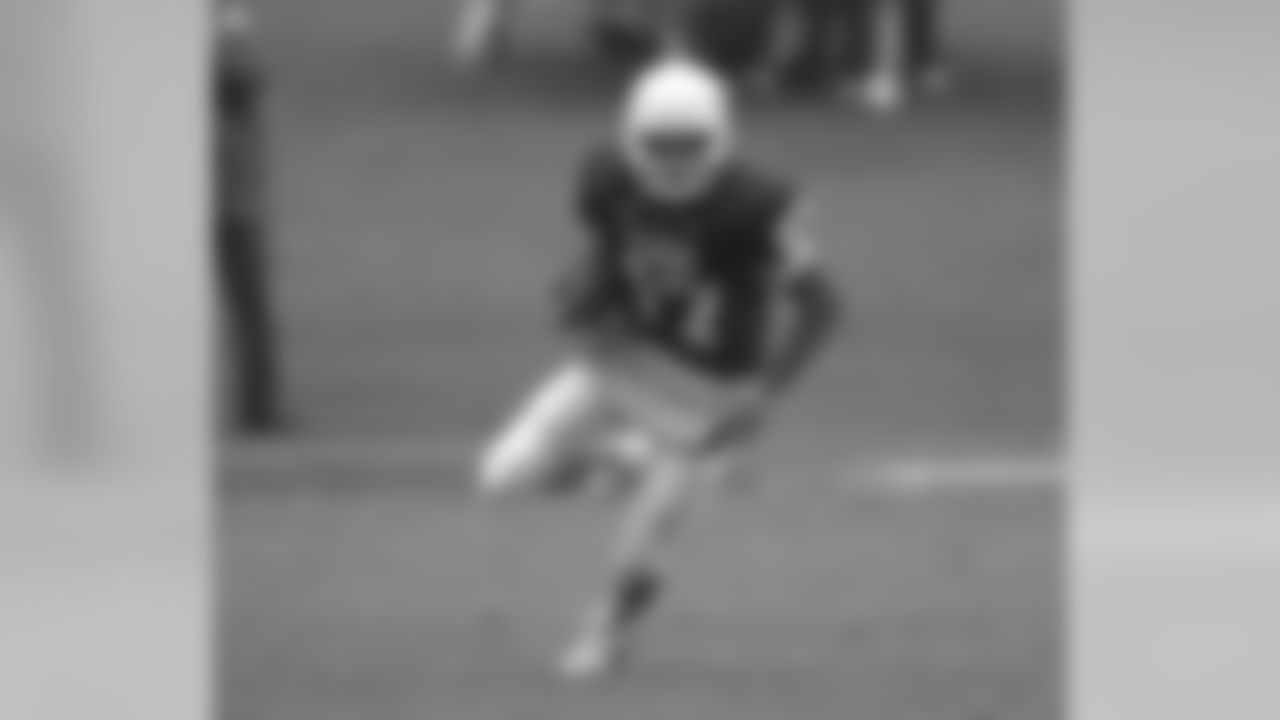

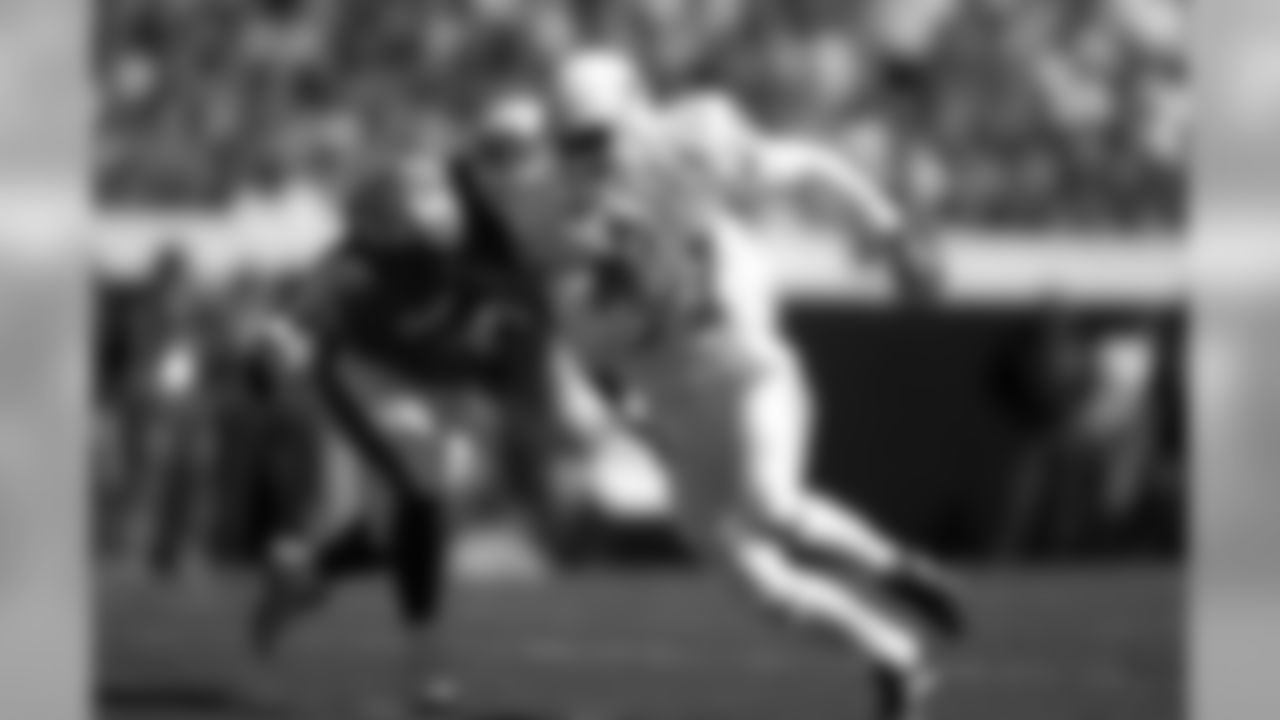
Hightower briefly left the football world behind after graduation and worked at a staffing agency. He made decent money, but it took him just six months to realize that he missed the game too much. Hightower penned a letter to former Houston Texans general manager Charley Casserly.
The best Casserly could do was provide Hightower with a marketing internship. Hightower thrived in the role and eventually earned a full-time gig with the Texans. He still knew deep down that he'd ditch the business side for a spot on a coaching staff should the opportunity present itself.
That chance came when Shanahan joined the Texans staff in 2006 as the wide receivers coach. He helped Hightower land an intern-level role that was lower on the totem pole than quality control coaches. It wasn't glamorous, but it was a foot in the door. That's all Hightower needed. He left the money and security of his marketing job to do grunt work under head coach Gary Kubiak. His $40,000 salary was now an hourly wage of $5.15. The career move baffled those on the business side.
"I remember the head of marketing coming to my office and telling me, 'Hightower has such a good career over here. He's going to do so well. Don't go have him do this job,'" Shanahan said.
Hightower spent two seasons in that role from 2006-08 before being elevated to special teams assistant in 2008. He then departed for the University of Minnesota to be the receivers coach for the Golden Gophers. The NFL came calling back a year later when Shanahan joined forces with his father, Mike Shanahan, with the Washington Redskins. Hightower spent four seasons with the Redskins from 2010-13, splitting his time between assistant defensive backs coach and special teams assistant. Shanahan and Hightower were together for one more year in 2014 with the Cleveland Browns before Shanahan became the Atlanta Falcons offensive coordinator.
The 49ers hired Hightower in 2015 as a special teams assistant under Thomas McGaughey and then he held the same role with the Chicago Bears in 2016. Shanahan called him again shortly after the 2016 season. He'd just been hired as San Francisco's head coach, and he wanted to interview Hightower to be his special teams coordinator.
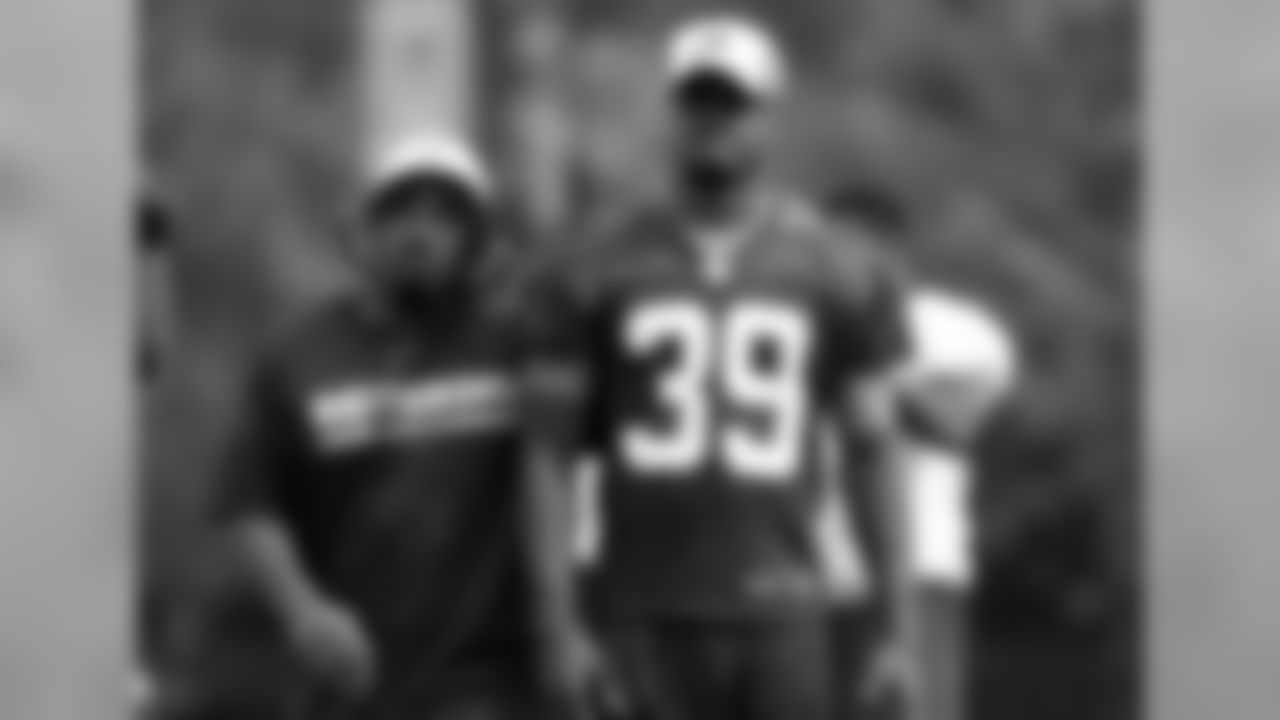


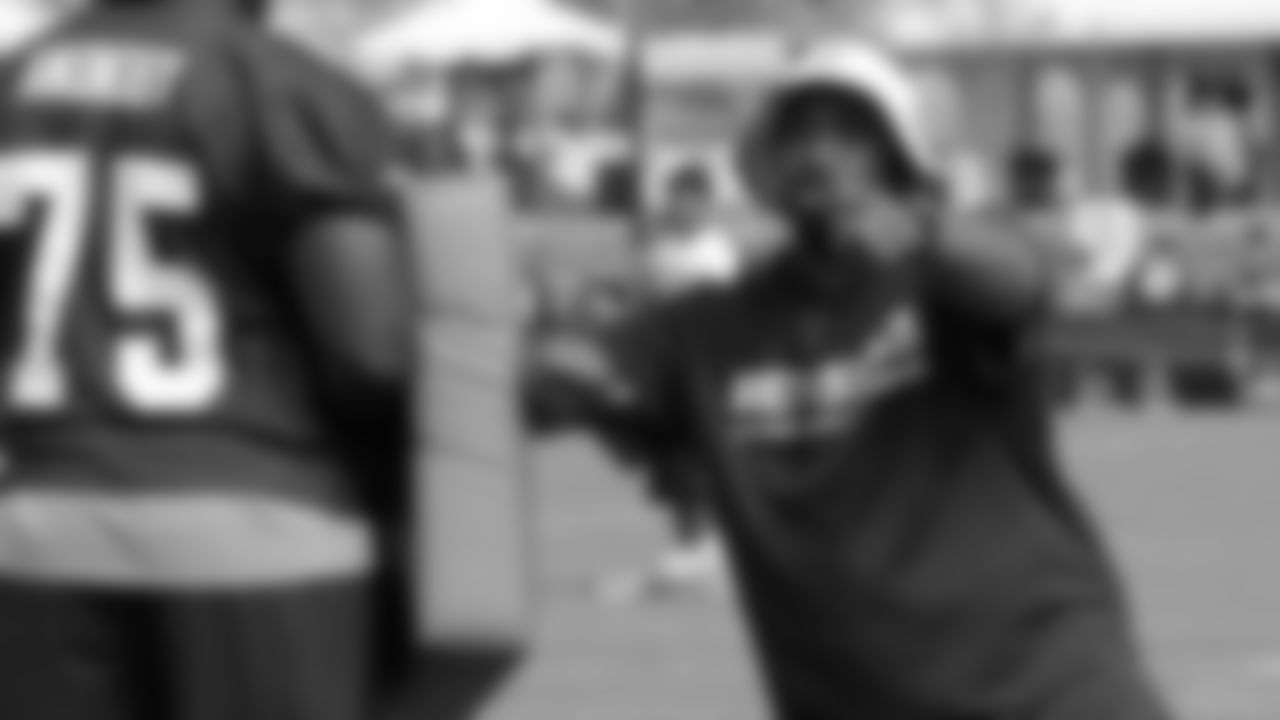


Coincidentally, the two sat in Hightower's old office during the interview. Neither mentioned the elephant sitting in the room, although both were acutely aware of its presence. They knew sentiment couldn't get in the way of a decision that would be made purely on the merits of Hightower's coaching acumen. Shanahan remembered the tension created when his father passed over Hightower for the same role back in 2013 with the Redskins (Hightower spent that season as Washington's No. 2).
"I was very nervous because that's an awkward thing for a friendship, and it was an awkward thing when my dad didn't hire him," Shanahan said.
The 49ers interviewed three candidates to be special teams coordinator: Hightower, Eric Sutulovich (Atlanta Falcons No. 2) and Ryan Ficken (Minnesota Vikings No. 2). Shanahan grilled each candidate about philosophy and vision. He wanted to see if the lessons taught in practice were translated into game situations.
Shanahan strategically had Hightower go last, hoping that his friend would stand out among the three.
"We spent a lot of time in there, and he had a lot of questions," Hightower said. "He poked holes in everything as he always does because he's so detailed. He tried to make sure I was prepared. He was very thorough, and I wanted it that way."
They were into hour three of the interview when Shanahan interrupted Hightower.
"Alright dude that's enough," he said. "Do you want this job? Cause you've got it if you want it."
Hightower remembers it vividly – mainly the combination of relief, exaltation and accomplishment.
"I'm fortunate and happy that I ended up being that person," Hightower said. "That was a cool moment. I worked a decade for that moment. That was awesome."
His first two seasons as an NFL coordinator have been largely successful. Robbie Gould has made 72-of-75 combined field-goal attempts from 2017-18. The 49ers coverage units have also been stellar. San Francisco's punt coverage team allowed just 4.2 yards per return in 2017. That number ranks eighth in NFL history. NFL journeyman Raheem Mostert found a home in San Francisco and has developed into one of the league's top special teams players under Hightower's tutelage. Richie James, a seventh-round pick in 2018, was named to ESPN's All-Rookie Team after averaging 25.2 yards per return on 23 kick returns. The highlight of James' season was a 97-yard kick return touchdown against the Seattle Seahawks in Week 15.
Shanahan recognizes that San Francisco's success on special teams is a direct reflection of Hightower, proving to himself that he made the right hire.
"I think the buy-in from his players is as good as any special teams coach I’ve ever been around." Kyle Shanahan
"I think the buy-in from his players is as good as any special teams coach I've ever been around," Shanahan said. "His guys believe in him. They know how passionate he is. They know how hard he works for them. He can get on guys and call them out and guys don't take it personally. They know he genuinely cares about them. They know he genuinely works hard.
"In order to get the best out of a player, they have to trust you and they need to respect you. They also have to know that you're going to help them. That's what Hightower gets with his guys."
Those are strong words – praise that would make Richard Anthony Hightower Sr. beam with pride if he were still alive. Hightower lost his father to a diabetic coma in 2009 just before moving to Minnesota. He regrets his dad not being able to see how far he's come as a football coach.
More importantly, Hightower wishes his father were here to see his growth as a man, a husband and now as a dad. Hightower married his high school sweetheart Lanet (he joked he's been chasing her since the seventh grade), and they now have three kids of their own. The two are kindred spirits, each enduring and overcoming similar childhood hardships as Lanet went on to earn her doctorate in Pharmacy.
The same rules still apply in the Hightower household. One Sunday night, his seven-year-old son was struggling with his math homework. He'd mastered addition, but subtraction flummoxed the young first grader.



"I can't do it," said his exasperated son. "I quit, it's too hard."
Predictably, Hightower wasn't thrilled.
"That set me off," Hightower said. "I told my son, 'I don't care about the problems you got wrong. What I care about is the fact that you said you quit. We don't quit in this house.'"
Because winners never quit, and quitters never win.
"I would have wanted my dad to see me be a father – having kids and able to take care of all three of them," Hightower said. "I would have wanted him to see that part more than the football accomplishments. That's what he would have been most proud of."
His personal and professional résumés would not only make Hightower Sr. proud, but would also undoubtedly provide him with a sense of validation as a father. Not only did his kids make it out of that troubled Houston neighborhood, but both are thriving in their respective fields.
Hightower's journey is far from over. His hand is still void of a Super Bowl ring, and there's much work to be done raising his three kids. However, there's still nothing wrong with recognizing what he's achieved thus far.
"He's still doing the exact same thing that he was doing as a walk-on on our team," Brown said. "He's knocking down every wall. Any time there's something in his way that could be a road block for a lot of people, he just moves forward and makes it a positive."





